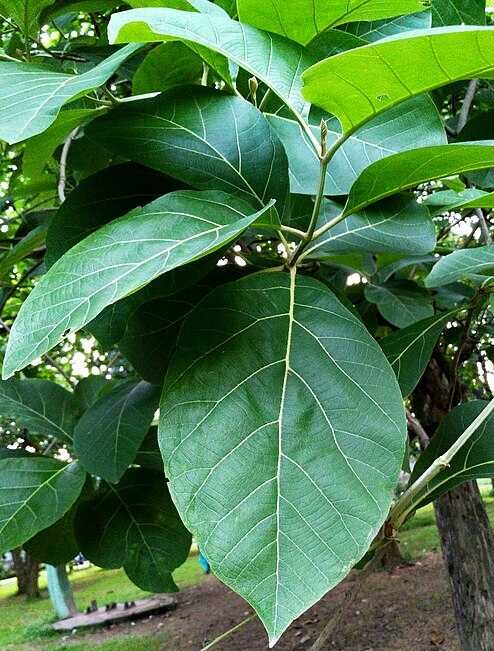Introduction
Teak, scientifically known as Tectona grandis, is a tropical hardwood tree belonging to the family Lamiaceae.
This majestic tree is renowned for its exceptional qualities and is native to the south and southeast Asian region, including countries like India, Myanmar (Burma), Thailand, and Indonesia.
Click on the headings to read more!
Natural Habitat
Teak trees thrive in tropical climates, favoring well-drained soils and warm temperatures. They are commonly found in monsoon regions, often growing in deciduous forests.
Growth Characteristics
Teak trees are large, deciduous trees that can reach impressive heights of up to 30 meters (approximately 98 feet). They have a straight, cylindrical trunk with a diameter ranging from 1 to 1.5 meters (3 to 5 feet). The tree’s growth is characterized by a relatively rapid development, with teak wood being harvested for its quality timber.
Leaves
The teak tree’s leaves are large, simple, and ovate. They are arranged in opposite pairs and have a smooth margin. The foliage is dense and provides a wide, shady canopy.
Wood Quality
Teak wood is highly prized for its exceptional durability, strength, and resistance to decay. It contains natural oils and silica that contribute to its weather-resistant properties, making it a preferred choice for outdoor furniture, boat construction, and various other applications.
Harvesting
Teak wood is typically harvested when the tree reaches maturity, which can take several decades. The quality of the wood is enhanced as the tree matures, resulting in timber that is sought after for its use in high-quality furniture and construction.
Plant care
Caring for a teak plant involves providing the right conditions for its growth and well-being. Here are some essential care tips for your live teak wood plant:
Light
Teak plants thrive in bright, indirect sunlight. Place your plant in a location where it receives filtered or dappled sunlight.
Avoid exposing the teak plant to harsh, direct sunlight for extended periods, as this can lead to leaf scorch.
Soil
Use well-draining, rich potting soil. A mix that includes perlite or sand helps maintain proper drainage.
Consider repotting your teak plant every 1-2 years to refresh the soil and provide more space for growth.
Water
Keep the soil consistently moist but not waterlogged. Allow the top inch of the soil to dry out before watering again.
Water the plant thoroughly, ensuring that excess water drains away to prevent root rot.
Adjust the watering frequency based on the environmental conditions; teak plants may need more water in warmer months.
Fertilizer
Feed your teak plant with a balanced liquid fertilizer during the growing season (spring and summer). Dilute the fertilizer according to package instructions.
Reduce or stop fertilization during the plant’s dormant period in fall and winter.
Complementary Plants
For a touch of diversity, consider pairing it with our Fig (Anjeer) Plant, known for its unique fruits and lush foliage, or explore the sophisticated blend of wood and vibrant fruits with our Black Jamun (Java Plum) Plant.

